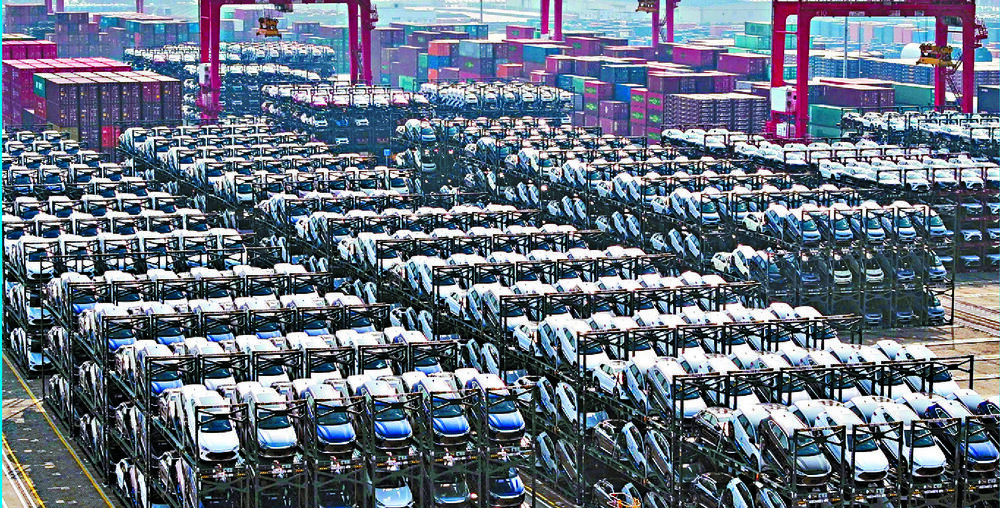Cici Cao and agencies
The European Union has decided to increase tariffs on Chinese-built electric vehicles to as much as 45.3 percent at the end of its highest-profile trade investigation that has divided Europe and prompted retaliation from Beijing.
The extra tariffs were formally approved on Tuesday and took effect yesterday.
China’s commerce ministry said in a statement that China “does not agree with or accept the ruling.”
”We also noticed that the EU side indicated it would continue to negotiate with China on price commitments,” the ministry said, adding that Beijing hoped to find a “solution acceptable to both sides as soon as possible to avoid escalating trade friction.”
The China Chamber of Commerce to the EU said it was profoundly disappointed by the “protectionist” and “arbitrary” EU measure and was disheartened by the lack of substantial progress in negotiations to find an alternative to tariffs.
In other news, BYD announced a net profit in the first nine months of 25.2 billion yuan (HK$27.5 billion), up 18.12 percent, thanks to its third-quarter operating revenue.
Its operating revenue in the third quarter amounted to 201.1 billion yuan, up 24 percent year-on-year.
Tesla announced last week its revenue in the third quarter amounted to US$25.2 billion (HK$196.56 billion) – a year-on-year increase of 8 percent, with a net income of US$2.2 billion.
Market watchers say its sales outside China will be key for further gains in its Hong Kong-listed stock, which has surged more than 70 percent from a February low.
BYD is also reportedly hiring the former UK chief of Stellantis NV, according to people familiar with the matter, as the EV maker builds a team of European executives to lead its expansion in the region, according to Bloomberg.
Maria Grazia Davino is likely to have responsibility for a cluster of European countries for BYD after she ends garden leave in December, according to the sources, who asked not to be identified.
The manufacturer’s electric vehicle BYD Atto 3 has been rated as “not recommended” by the European New Car Assessment Programme primarily due to the poor performance of its intelligent driving control system.
Meanwhile, Xiaomi said its research and development investment this year is expected to exceed 24 billion yuan (HK$26.18 billion), with nearly 30 billion yuan to be put in 2025.
The company’s new car, Xiaomi SU7 Ultra, saw more than 3,680 orders in the first 10 minutes of pre-selling on Tuesday. The SU7 Ultra was priced at 814,900 yuan, with a deposit of 10,000 yuan.
cici.cao@singtaonewscorp.com


